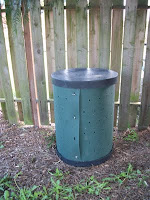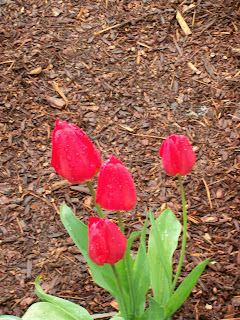Today, we will be talking about cleaning out the coop.
When you keep animals, you must keep their enclosures clean. Chickens are pretty stinky critters. So when their coop begins to start smelling... Well, like a coop I have a couple of choices on what I will do.
Some people clean their chicken coops obsessively. I knew of a woman that went out into her coop and cleaned it daily. Meaning she swept every stray bit of poop up and replaced the litter daily. Some people clean once a week or once a month. I am a lazy person. I clean the coop when my nose tells me I need to clean the coop.
Don't get me wrong, I will throw down a bucket or two of fresh bedding on top of the soiled bedding once a week to cut down on flies and smells, but if the smell doesn't get to me at 20 feet, I ain't gonna clean the coop. Truthfully, chickens don't care. They are not fastidious creatures. They poop in their own water. Trust me. They don't care.
Once it gets to the point that the coop needs a cleaning, you can tell. It makes you want to clean the coop. You can hardly wait to clean the coop. You daydream at work about cleaning the coop! If the bedding stays dry generally smell is pretty nil. But once it gets wet, that poop and bedding begin to, let's say, ripen.
I let the girls wander around the yard and get the mucking out tools. Usually a shovel, a rake, a broom and a garbage can or big tub.
I put on the Wellingtons, put my hair up and go to town, figuratively speaking. I actually go into the coop and start from the corners and move my way to the center then out the door.
As you can see by some of my photos, my coop was put together with bits and pieces of things I found in free piles and from some of the houses being built in the neighborhood. All together I think it cost me about twenty bucks for a few 2 by 4s and the hinges and locks.
Anyways, cleaning out the coop and re-bedding it with cheap pine shavings takes me about an hour, depending on how thorough I want to be, Most of the time, not that thorough. I take the time to knock cobwebs out of the corners because the chickens love chasing after the spider and moths. Once they start laying I will take time to clean out their nest boxes.
After I get all the bedding and poop out of the coop, I throw it into my Seattle composter and compost it. Chicken poop makes AWESOME compost! I am a bona-fide Master Composter (I used to even be the volunteer coordinator for that program). I even gots me a certificate proving it around here somewhere! If you want to be a Master Composter yourself you can find info on the program through Seattle Tilth here.
 It is up to each individual person how clean they want their coops to be. I say be a good neighbor. If you can smell it, there is a good chance your neighbor can too. Chickens are pretty happy as long as they are warm and dry and get to scratch in the yard a little everyday. The cleaning of the coop is mainly for us humans. I clean the coop to be a good neighbor and to use their waste as compost for my vegetable garden.
It is up to each individual person how clean they want their coops to be. I say be a good neighbor. If you can smell it, there is a good chance your neighbor can too. Chickens are pretty happy as long as they are warm and dry and get to scratch in the yard a little everyday. The cleaning of the coop is mainly for us humans. I clean the coop to be a good neighbor and to use their waste as compost for my vegetable garden.















